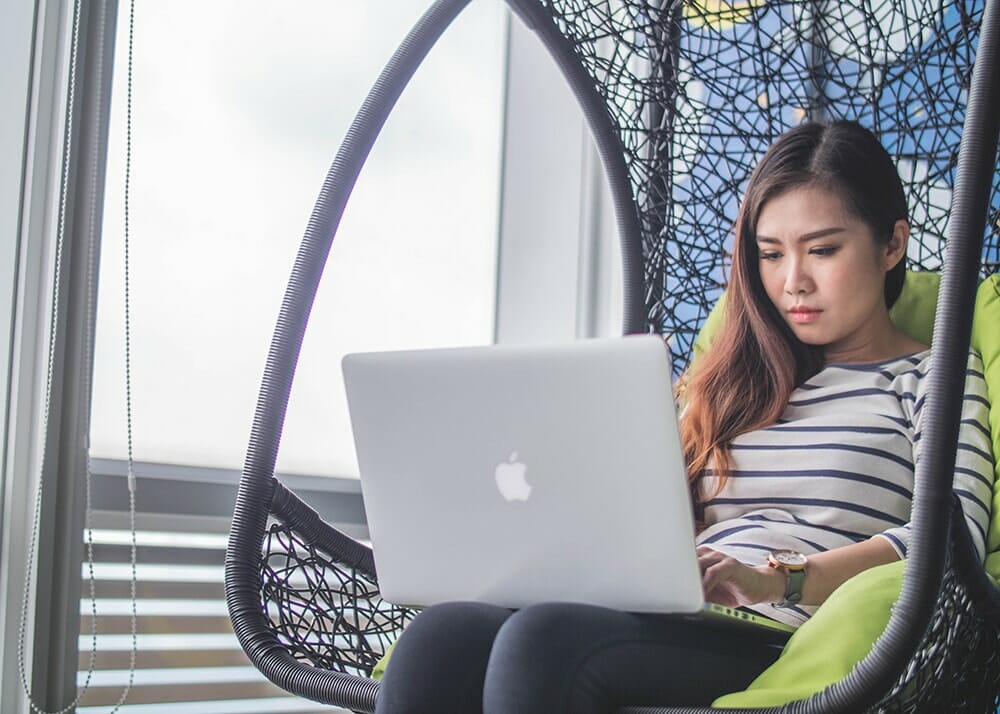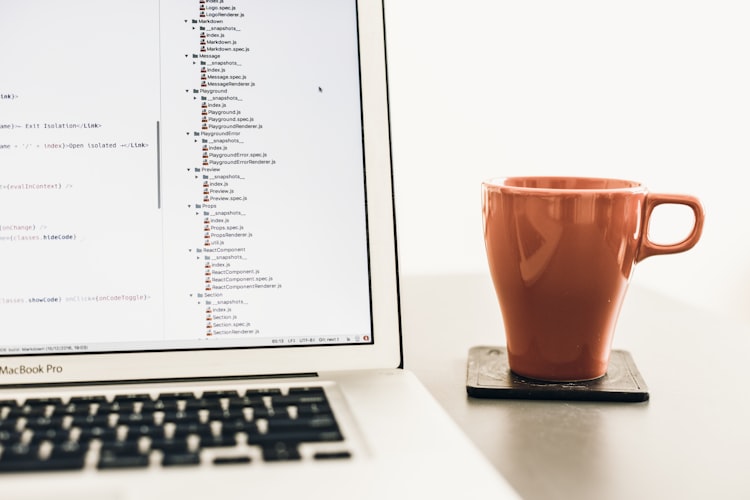
Hands up if you too are an introvert who gets easily drained from the daily expectations of a traditional job. The endless meetings and interruptions, or that one colleague who just doesn’t understand the sacred headphone space.
I personally blame the open concept office for making the workplace so distracting (and distressing!) for introverts, but that’s a story for a different time.
With all these in mind, I expected freelancing to be a dream job. I’ve always been most productive on the days I work from home – energised and recharged, in fact, even when I worked longer hours, so it seemed like a no-brainer. Coupled with the flexibility of being my own boss, I could now work from anywhere at any time.
Side note: I was also deeply allergic to mornings (and alarm clocks) so seriously, this was win-win all around.

The first week was great. I was killing it. I had time to go to the gym every day, at 3pm no less, when there was no one around but college students. I read books. I watched lots of TV. I even completed two courses on Coursera in a week.
By week two, some of the high had worn off. Sure, it was incredibly validating when all my friends were so envious – most of them would get a far off look, followed by a wistful ‘I should quit my job too’. But then the topic would veer to colleagues and impractical bosses and ‘Oh my God, did you know what happened at work today?’, and I would have nothing useful to add to the conversation.
Time also began to meld into one, big giant blob of stretched out nothingness. I began to miss all the annoying times someone had interrupted my (overrated) state of flow to ask me a question because it usually came with an invite to the vending machine for snacks or a little powwow about why your plants keep dying. (Apparently, indoor plants need sunlight too. Go figure.)
The truth is that you spend a lot of time with the people you work with in passive social engagement. They’re your lunch buddies, your meme-exchanging BFFs. They’re part of a comfortable routine that keeps you motivated and mindful of what you’re doing throughout the day. Who was I supposed to high five now when I completed a difficult task? I was on first-name terms with the barista at the café I worked at, but I didn’t think we were quite there yet.
I went back to full time employment just two months later. The crippling loneliness got to me, and I was finding it difficult to stay motivated. I felt like Jessie in Toy Story when she sang ‘When She Loved Me’ because I secretly aspire to that level of drama in my daily life.
I knew though, that I would eventually give it a second go as there were so many aspects of freelancing that I loved. (Duh.) I’m currently going through that second go with a much healthier head space and outlook. Here’s how I’ve learnt to deal.
1. Know who you are outside work
We spend so much time at work so it’s understandable that it becomes such a core part of our identities. When I could no longer relate to the conversations my friends were having, I had a bit of a crisis. Who was I as a person now? What was my worth?
It was a good wakeup call for me to rediscover the other aspects of myself that I had neglected in my all-consuming pursuit of work. I’ve had similar insights from stay-at-home mums and retirees, and just… it’s so important. Don’t let work make you forget the rest of you.
Above all, learn to be comfortable with this person that you’ll be spending so much time with. As someone who also deals with depression and anxiety, this was one of the most difficult parts for me. I used to find myself trying to cram too many activities and social outings into my calendar just to avoid having too much alone time, but by practising mindfulness (I have a meditation app! and I practise yoga), I’ve become better with being by myself.
2. Be mindful about spending time with others
When you’re part of an office, there are so many spontaneous lunches, dinners, after-work drinks, and team birthdays to go to that really, who makes plans anymore? It’s especially important if, like me, you don’t live with family or partner that you can depend on for company.
Now, I’m mindful about having weekly lunch and dinner plans with different loved ones and have become closer friends with others who are always up for a spontaneous outing.
3. Be part of a community
As human beings, we crave belonging. It’s important for our overall well-being to be part of a group of like-minded people who value the same things we do.
Without work, who are your people? Find something you love, and find them out there. Recreational communities are becoming increasingly popular, from hiking to Zumba to Crossfit, but you can also be more active in your local religious or social community. For me, my current freelance work puts me in contact with other freelancers who I am beginning to hang out with more.
As painful as it is to tackle these raw, vulnerable emotions, acknowledging it is the first step. The loneliness that comes with freelancing is real, but many don’t talk about it because we don’t talk about loneliness, period. It’s not all glitz and drama; sometimes it’s just you sitting alone in your sweatpants at 6am hammering away at your laptop as your deadline looms close.
But the same goes for just about anything in life. I’ve made conscious decisions to work through these more negative aspects because at the end of the day, the freedom and flexibility I get from freelancing are things I really enjoy.
For more Career & Skills articles, read The Moment I Decided Never to Be Late for Meetings Again, and Why Internships Are Important
More from Real Skills
How I Saved Almost RM50,000 On Buying My First Car
Here's how this Malaysian man with a RM3,500 salary saved RM50,000 on his first car.
Angry M’sian Boss Demands Unpaid Overtime Over Raya, Causes 9 Staff To Quit
An anonymous employee at a local SME shares how a bad-tempered boss eventually caused 9 staff to quit before Hari …
I Studied In Chinese School As A Malay Boy, Here’s What I Learnt
Every time I used Mandarin outside of school, family members would come up to me at gatherings and ask me …















